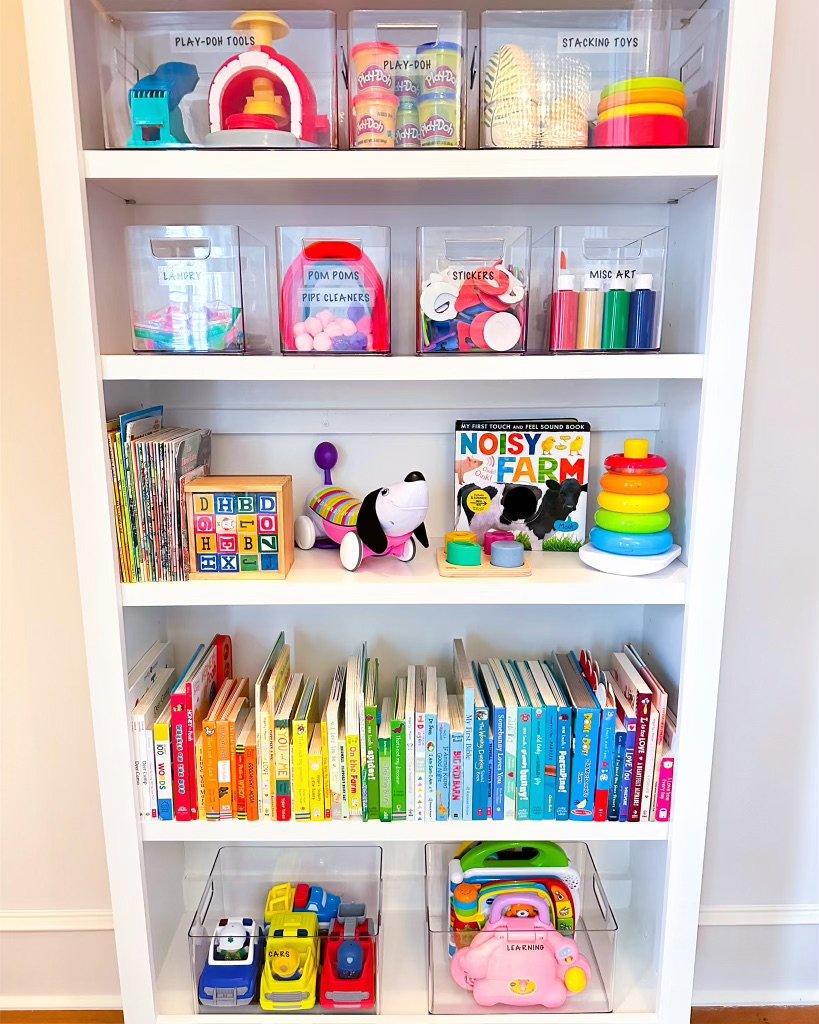How to Teach Kids About Organization: Tips for Every Age Group
Teaching kids about organization from a young age sets them up for success in many aspects of life. It helps them develop important skills like time management, responsibility, and independence. Here’s how you can introduce organization to kids at different age levels, making it fun and engaging for them while keeping it professional and effective.
Toddlers (Ages 2-4)
Make It Fun
At this age, organization should be all about fun and games. Use colorful bins, baskets, and labels with pictures to help toddlers understand where their toys belong.
Game Time: Turn cleanup into a game. Sing songs or set a timer to see how quickly they can put their toys away.
Simple Sorting: Teach basic sorting by having them group similar items together, like blocks in one bin and cars in another.
Lead by Example
Toddlers learn by watching. Show them how you organize your own things and involve them in simple tasks like sorting laundry or putting away groceries.
Preschoolers (Ages 4-6)
Introduce Routines
Preschoolers thrive on routines. Establish a simple daily routine that includes time for tidying up their play areas.
Morning and Evening Clean-Up: Have specific times in the day, like before meals or bedtime, dedicated to cleaning up toys and organizing their space.
Responsibility Charts: Use charts with stickers to reward them for completing organizational tasks.
Encourage Independence
Give preschoolers more responsibility in organizing their own belongings. Use clear storage solutions they can easily access and encourage them to take charge of their space.
Elementary School (Ages 6-12)
Break Down Tasks
Older kids can handle more complex tasks, but it’s important to break them down into manageable steps.
Checklists: Create checklists for organizing their room, packing their school bag, or getting ready for school. This teaches them how to plan and prioritize.
Homework Stations: Set up a dedicated homework area with all necessary supplies organized and within reach.
Involve Them in Decisions
Let kids have a say in how their space is organized. This fosters a sense of ownership and encourages them to maintain order.
Personal Touches: Allow them to choose their own storage bins, labels, and decorations for their room or study area.
Teenagers (Ages 13+)
Teach Time Management
For teenagers, organization extends beyond physical spaces. Teaching them to manage their time effectively is crucial.
Planners and Apps: Introduce planners or organizational apps to help them keep track of assignments, extracurricular activities, and social events.
Goal Setting: Encourage them to set short-term and long-term goals and create plans to achieve them.
Foster Independence
Teenagers should be given full responsibility for their own spaces and tasks, with guidance as needed.
Personal Accountability: Teach them the importance of maintaining their personal space, whether it’s their bedroom, locker, or study area.
Life Skills: Include organizational skills as part of broader life skills training, such as managing finances, planning for college, or preparing for part-time jobs.
General Tips for All Ages
Be Patient and Positive
Organization is a skill that takes time to develop. Be patient and offer positive reinforcement to encourage your child’s efforts.
Celebrate Success: Celebrate small victories to motivate them. Acknowledge their progress and reward them with praise or small incentives.
Consistent Habits: Help them form consistent habits by integrating organizational tasks into their daily routine.
Customize Strategies
Every child is unique. Tailor your organizational strategies to fit their personality, interests, and developmental stage.
Flexibility: Be flexible and willing to adjust your approach as they grow and their needs change.
Teaching kids about organization is a valuable investment in their future. By starting early and adapting your strategies as they grow, you can help them develop skills that will serve them well throughout their lives. At Organize & Prioritize, we’re here to support you with expert tips and personalized organizing solutions for your family.
-O&P









